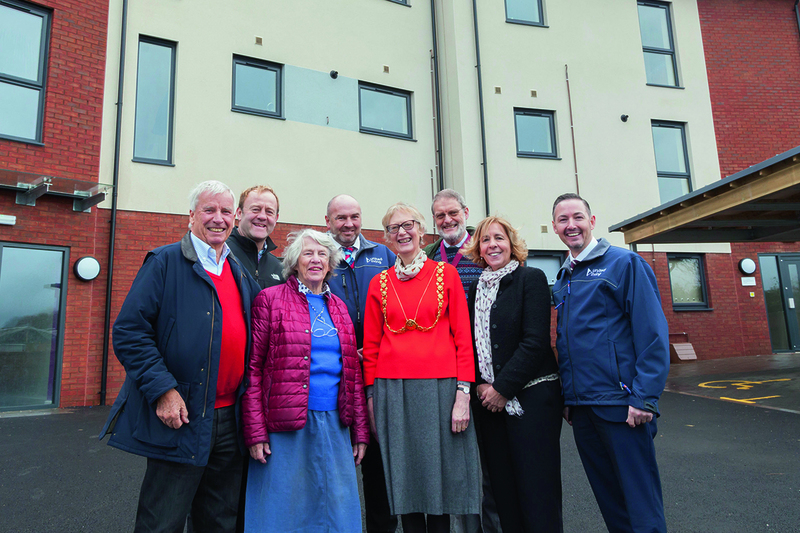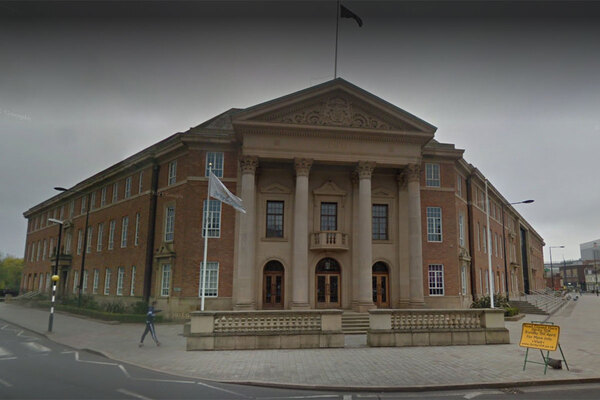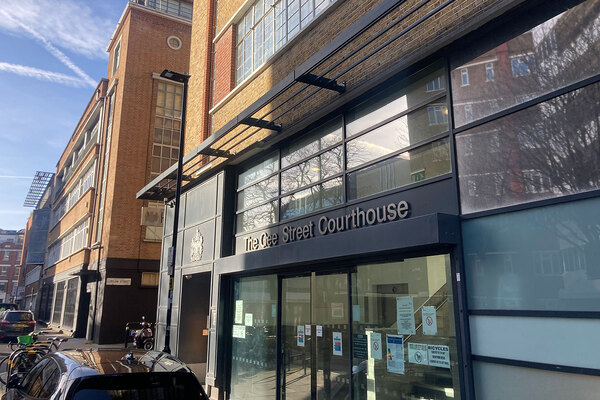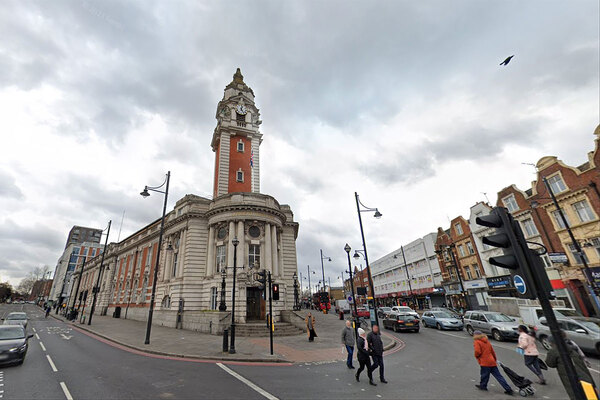Building better futures
Two housing associations are working with construction company United Living to develop housing for homeless people
Article written in partnership with:

Knightstone Housing
Restoring pride
Project: New Hope Crescent
New homes: 10
Scope of work: Accommodation and reintegration programmes for veterans
Ex-service personnel accounted for one in four of Bristol’s rough sleepers at the turn of the decade, says Caroline Hughes, head of development at 11,000-home Knightstone Housing, as she outlines the challenge faced by the social landlord in addressing the plight faced by some veterans.
The unpalatable statistic, she says, was the catalyst behind a pioneering train-and-build development model that has involved Knightstone partnering with the charity Community Self Build Agency (CSBA), Bristol City Council, and contractors including United Living.
The development model not only seeks to provide veterans with accommodation, but also on-site, one-to-one training in basic building skills during construction and the opportunity to reintegrate into civilian life once the project is complete.
In January 2016, the former head of the British Army, General Sir Peter Wall, opened Knightstone’s second development, the York Road project in Bedminster, Bristol, which consisted of 10 one and two-bedroom homes.
Ms Hughes says the project was a team effort from the beginning. Development costs of £1.4m were met by the Homes and Communities Agency (HCA); charities helped fund the training; while the land, a disused car park, was negotiated with the owner and social landlord Places for People. And while the CSBA enrolled veterans to the scheme, selecting the right contractor was down to Knightstone.
So why United Living? Knightstone became aware of United Living as it was on the Westworks procurement framework, a list of trusted traders drawn up by housing associations, local authorities and charities in the south and south-west of England and Wales.
But it was United Living’s “understanding of the project’s aims that sealed the decision”, says Ms Hughes.
“United Living was aware of the ethos of the development model, the importance that we placed on training and apprenticeships, and that we also needed sub-contractors and those on-site to buy in to the project’s aims.”
The train-and-build contract was adapted from standard Joint Contracts Tribunal (JCT) terms for a design and build project but introduced conditions covering training and support for the veterans taking part.
“We needed a full-time dedicated trainer on site and the training had to be built into the timeline for the build. United Living delivered on both these criteria and embraced the ethos of what we were doing.”
So one year on, what’s been achieved? All participants attended first aid and health and safety courses; two gained the Construction Skills Certification Scheme (CSCS) card; and one passed a management CSCS test scoring 95% and is set to complete a Chartered Institute of Building Level 4 site management certificate.
And the residents have officially renamed the development New Hope Crescent, which Ms Hughes says reflects the success of the project.
“Since it opened, the number of people using the site has increased as residents have rebuilt their lives. This was one of the key aims of the project. It’s great to see veterans rebuilding relationships, social lives, confidence and skills.”
WM Housing
Secure safe space
Project: Kidderminster Foyer
Contract value: £1.5m
Scope of work: Foyer developments aimed at supporting homeless young people
The ‘foyer concept’ is aimed at 18 to 25-year-olds who are essentially homeless, says Nick Edge, development project manager at WM Housing, which manages more than 30,000 homes across the West Midlands.
“These are young people who have been displaced from the family home; they’re sofa-surfing with friends or relatives and have never had their own place before. We’re trying to reach them before they reach the streets.”
WM completed its first foyer project in 2010 as it responded to the rising numbers of young people across the region who were turning to social landlords and the local authority for accommodation.
The pilot development had to offer “secure accommodation”, says Mr Edge, and an environment in which they can develop life skills, from “cookery to managing bills and benefits and identifying job opportunities”.
But the build also offered the opportunity to develop further social benefits, as all design and build contracts tendered by WM call on contractors to offer apprenticeships around basic construction skills from plastering and painting, to electrical work and general labouring.
It was a huge team effort to get the project off the ground, says Mr Edge. Architects Walker Troup drew up the foyer plans, contractor United Living planned the build, and homeless support charity St Basils managed the accommodation once it was complete.
The reason WM selected United Living for the build was that its team immediately got on board with its aims and committed to its vision, says Mr Edge. He adds that the contractor went on to champion the project in the local community.
Under the plans, the Bromsgrove Foyer would comprise 11 bedsits and four flats, a training kitchen, and an IT suite for young homeless people to use. But plans ran into unexpected opposition from local residents who were concerned by the nature of the client group, and threatened to create bad publicity.
United Living was instrumental in overcoming local residents’ fears, hosting regular open meetings with locals to discuss their problems and seek to resolve them. In what Mr Edge says was a major U-turn, local residents eventually embraced the project, with some even getting involved in fundraising events.
The success of the Bromsgrove scheme, says Mr Edge, served as a benchmark for the larger Kidderminster Foyer that opened in 2014.
The £1.5m development received grants of £560,500 from the HCA and £200,000 from local authorities, while Wyre Forest District Council donated the land. And, once again, United Living was part of the project team from the get-go, says Mr Edge.
The development comprises 16 bedsits and three one-bed apartments, and is run by St Basils on behalf of WM Housing on a three-year agreement. Tenancies for residents run from six months to two years.
Mr Edge says the support of the local authority, the architect and St Basils was essential. “These foyers provide the kind of spaces and support young people need when they’re struggling to find secure accommodation and employment. We want them to use their time at the foyer to equip themselves with the skills to go forward.”









